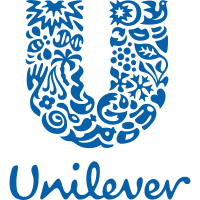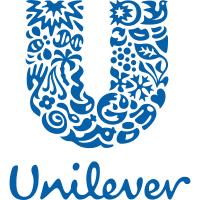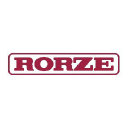
Unilever PLC
LSE:ULVR

Intrinsic Value
The intrinsic value of one
 ULVR
stock under the Base Case scenario is
4 381.52
GBX.
Compared to the current market price of 4 806 GBX,
Unilever PLC
is
Overvalued by 9%.
ULVR
stock under the Base Case scenario is
4 381.52
GBX.
Compared to the current market price of 4 806 GBX,
Unilever PLC
is
Overvalued by 9%.
The Intrinsic Value is calculated as the average of DCF and Relative values:

Valuation History
Unilever PLC

Fundamental Analysis


Revenue & Expenses Breakdown
Unilever PLC

Balance Sheet Decomposition
Unilever PLC

| Current Assets | 19.2B |
| Cash & Short-Term Investments | 7.5B |
| Receivables | 6.4B |
| Other Current Assets | 5.3B |
| Non-Current Assets | 60.6B |
| Long-Term Investments | 1.6B |
| PP&E | 11.7B |
| Intangibles | 40.9B |
| Other Non-Current Assets | 6.4B |
Free Cash Flow Analysis
Unilever PLC

| EUR | |
| Free Cash Flow | EUR |
Earnings Waterfall
Unilever PLC

|
Revenue
|
60.8B
EUR
|
|
Cost of Revenue
|
-33.4B
EUR
|
|
Gross Profit
|
27.4B
EUR
|
|
Operating Expenses
|
-16.2B
EUR
|
|
Operating Income
|
11.2B
EUR
|
|
Other Expenses
|
-5.4B
EUR
|
|
Net Income
|
5.7B
EUR
|
ULVR Profitability Score
Profitability Due Diligence

Unilever PLC's profitability score is 60/100. The higher the profitability score, the more profitable the company is.

Score
Unilever PLC's profitability score is 60/100. The higher the profitability score, the more profitable the company is.
ULVR Solvency Score
Solvency Due Diligence

Unilever PLC's solvency score is 42/100. The higher the solvency score, the more solvent the company is.

Score
Unilever PLC's solvency score is 42/100. The higher the solvency score, the more solvent the company is.
Wall St
Price Targets
ULVR Price Targets Summary
Unilever PLC

According to Wall Street analysts, the average 1-year price target for
 ULVR
is 5 048.25 GBX
with a low forecast of 3 737 GBX and a high forecast of 6 037.5 GBX.
ULVR
is 5 048.25 GBX
with a low forecast of 3 737 GBX and a high forecast of 6 037.5 GBX.
Dividends
Current shareholder yield for  ULVR is
.
ULVR is
.
Shareholder yield represents the total return a company provides to its shareholders, calculated as the sum of dividend yield, buyback yield, and debt paydown yield. What is shareholder yield?
The intrinsic value of one
 ULVR
stock under the Base Case scenario is
4 381.52
GBX.
ULVR
stock under the Base Case scenario is
4 381.52
GBX.
Compared to the current market price of 4 806 GBX,
 Unilever PLC
is
Overvalued by 9%.
Unilever PLC
is
Overvalued by 9%.
























































 You don't have any saved screeners yet
You don't have any saved screeners yet